The future is bright—and smells like whiskey
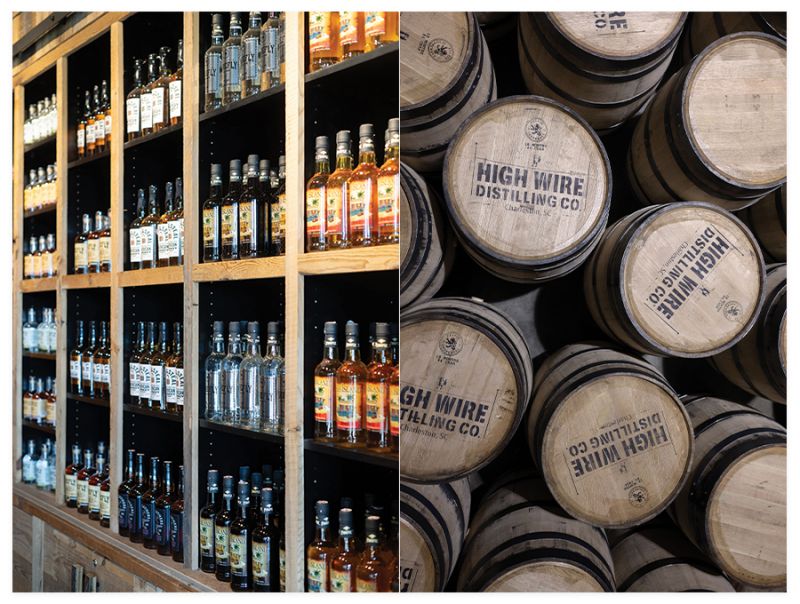
Just over 10 years ago, Charleston enjoyed a novel influx of locally made vodka, gin, and rum, the products of a few pioneering craft distillers that had launched operations in and around the city. The timing was propitious. Driven by a renewed passion for local ingredients and Southern recipes, Charleston’s acclaimed restaurants were transforming the city into an international dining destination. Craft brewing was flourishing, too, with one local brewery after another coming online and introducing Charlestonians to a fresh array of ales, bocks, and stouts. Producing unique local spirits seemed the next logical step, and changes to South Carolina laws had just made craft distilling commercially viable for the first time since Prohibition. What followed was a decade of experimentation, innovation, and growth.
It didn’t come without struggles. South Carolina’s craft distilleries have had to overcome restrictive state laws and federal regulations just to get their products to market. They’ve had to build out in-person experiences and expand operations to sustain growth. More than anything, they’ve had to find their identities and carve out distinctive niches in a competitive market dominated by large national players. As we head into 2024, the Holy City distilling scene is looking forward—high-spirited and very much on the move.
The Pioneers
The seeds of Charleston’s modern distilling industry were planted in 1999, when real estate developer Jim Irvin built 26 miles of grape trestles out on Wadmalaw Island and started a winery. Along the way, he met Scott Newitt, who had made a career in the wine business with producers like Gallo and distributor Republic National. Together, they hatched a plan to distill spirits from Irvin’s wine.
They picked muscadine vodka as their first product because that’s what was growing in the vineyard and no one else was selling muscadine vodka. There was just one problem: they had to produce it in Florida.
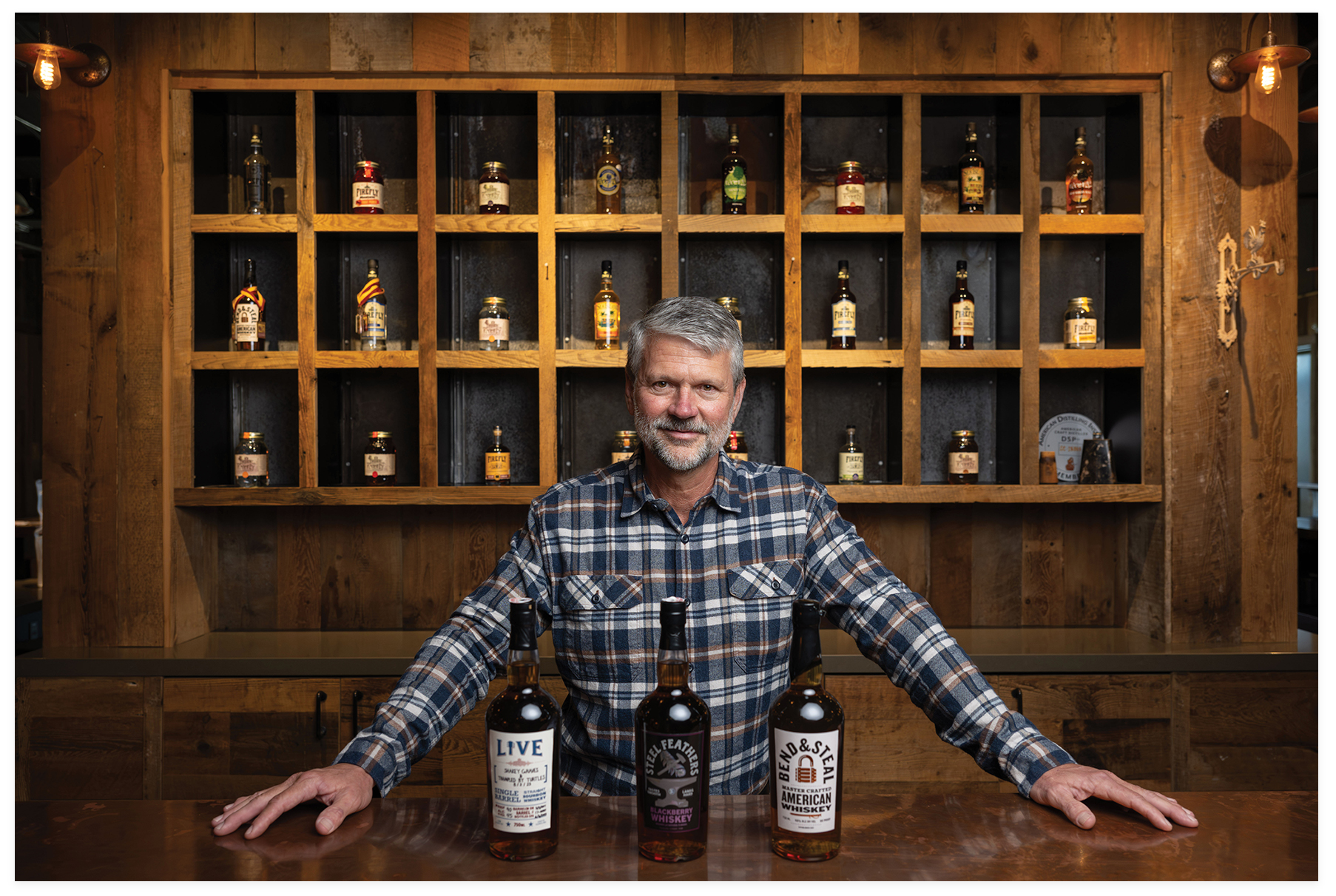
Blazing a Trail: Scott Newitt founded Firefly Distillery with his business partner Jim Irvin in 2005. By lobbying the legislature to lower prohibitive fees, they paved the way for the spirits industry in Charleston and the state

Firefly Sips: After the successful rollout of Lowcountry Sweet Tea Vodka, Firefly introduced additional lines and spirits, including White Lightning Moonshine, Sea Island Gold Rum, Lowcountry Lemonade Vodka, and Southern Accents Coconut Cake Liqueur. Their Bend & Steal and Steel Feathers whiskeys (above) are the newest additions to the portfolio.
Distilling spirits in South Carolina wasn’t illegal, but it required a prohibitively expensive license—$50,000 every two years. “We lobbied the [state] legislature to lower the fee from $50,000 to $5,000,” Newitt recalls. “That made it doable. Our pitch to them was, ‘We can employ people. We’re doing it in Florida. We’re trucking the wine down there and distilling it, and Florida’s benefiting and not South Carolina.’”
The change made Firefly Distillery a viable business, but muscadine vodka wasn’t a rocket to success. The real breakthrough came when the partners infused grain spirits with sugar and tea leaves grown at the nearby Charleston Tea Garden. The result was Firefly Sweet Tea Vodka. “That allowed me to leave my full-time job and Jim to leave his,” Newitt says. They launched the new product just as flavored vodkas were hitting their peak popularity and Charleston’s dining scene was gaining national attention. It gave local bartenders a great story to tell, and it was easy to move Sweet Tea Vodka shots to locals and tourists alike.
“We started in South Carolina in April,” Newitt continues, “and then it blew up. I got us into eight other states by August. And that was in 2008, so we couldn’t borrow any money because the banks were in deep trouble. Then we were approached by Buffalo Trace. They said, ‘Look, you got a tiger by the tail, and I bet you need some help,’ and we said, ‘We sure do.’”
The two firms forged a partnership in which the giant Kentucky distiller served as Firefly’s secondary production facility and, perhaps more important, deployed its field sales force to sell and distribute the white-hot vodka. “It’s all about getting to market first,” Newitt says, noting that a dozen or more big distillers immediately launched copycat versions. “By February of ’09, we were in all 50 states.”
That year, Irvin and Newitt were instrumental in getting a second law passed that permitted South Carolina distillers to actually interact with their customers. “It allowed us to open up a tasting room,” Newitt says, “and sell three 750-milliliter or smaller bottles per person per day. We could [offer samples of] an ounce and a half per person per day.”
There were still plenty of limitations. Guests had to take a distillery tour before sampling any spirits or buying any bottles, and they were restricted to three half-ounce samples that couldn’t be mixed into cocktails. But that was enough groundwork to allow a local distilling industry to take root.
Finding a Flagship
In the space of a few months in 2013, a trio of aspiring new distilleries appeared on the Charleston scene. First out of the gate was Striped Pig Distillery, which was launched by three primary founders—Johnny Pieper, Jim Craig, and Todd Weiss—in a warehouse just off of Azalea Drive in North Charleston. They made gin and organic vodka with corn, rye, and wheat grown at Myers Farms in Bowman, and the partners turned their sights on rum, too, using blackstrap molasses sourced from Savannah.
Opening fast on their heels was Charleston Distilling, which brought craft spirits to the heart of downtown’s bustling restaurant row on Upper King Street. The founders installed two stills, one for vodka and gin and another for whiskey, inside an impressive storefront with plate-glass windows and copper-clad walls. Meanwhile, five blocks up King Street, Ann Marshall and Scott Blackwell set up shop in a former paint contractor’s warehouse and launched High Wire Distilling.
This nascent flurry of distilling arrived just as Charleston, like most of the country, was in the throes of bourbon mania. Local bars were lining up flights of whiskey on old barrel staves alongside folds of country ham. Premium brands like Pappy Van Winkle, which once gathered dust on liquor store shelves, rocketed to collectible status, with newly released bottles getting snapped up and resold for thousands of dollars on the secondary market.
It was only natural that Charleston’s new crop of distillers would set their sights on whiskey, too, but there they faced a thorny problem. To be any good, whiskey needs to age for years in charred wooden barrels, so how do you pay the bills for the first few years of operation? One option was to buy already-aged spirits from a private label producer and blend or finish them in some unique way. Another was to focus on spirits that don’t need aging, like vodka and gin. But if everyone else is distilling vodka and gin, how does one stand out?
Sweet Tea Vodka was the turning point for Firefly. Charleston Distilling took a fierier route, launching a vodka infused with the infamous Carolina Reaper, the hottest chili pepper on the planet. High Wire found early success with its Hat Trick Gin, made with an unusual blend of botanicals that included whole juniper berries and fresh lemon and orange peel.
Marshall and Blackwell knew gin flavoring wasn’t going to be enough, and they set out to find a bigger differentiator. Early on, the couple had hired as a consultant the late Dave Pickerell, the former master distiller for Maker’s Mark. Blackwell recalls that as Pickerell was walking out the door at the end of the engagement, he turned and said, “I’m gonna leave you guys with one thing. You got all this [distilling] stuff. You’re gonna be fine. You understand a lot of these pieces, but you can’t out Maker’s Maker’s Mark.”
“We knew what he meant,” Blackwell says. “You can’t just use Yellow Dent No. 2 [corn] and some red wheat and hope that people will feel sorry for you because it’s local. . . . It’s like [artisan ham producer] Allan Benton competing against Oscar Mayer. You can’t do it, so you have to find your own thing.”
High Wire’s own thing turned out to be a local heirloom corn. They were turned onto it by Glenn Roberts of Anson Mills, who guided Blackwell through a sampling of almost-lost corn varieties like ‘John Haulk’ and ‘Pencil Cob’ before finally steering him to the dark maroon kernels of a unique breed from James Island. It was called ‘Jimmy Red,’ and it was said to have been a favorite of old coastal moonshiners. “Glenn said, ‘How much do you need to make a batch?’” Blackwell recalls. “And I said, ‘One thousand pounds’ . . . And he said, ‘It doesn’t exist. You’re gonna have to grow that.’”
High Wire contracted with Clemson’s Coastal Research and Education Center to grow their first crop. “When it came off the still,” Blackwell recalls, “it was so different than what we had made from yellow corn or white corn, even the heirloom ones.”
“In those early years,” Marshall says, “we developed the playbook on how to grow Jimmy Red. We turned a big corner when we found Campbell Coxe [of Plumfield farm in Darlington], and he was able to grow it for us and grow it 50 acres at a time.” In the years that followed, High Wire has expanded its network of commercial farmers who can grow Jimmy Red at scale, and those close partnerships with South Carolina growers have come to define High Wire’s identity. “We’re an agriculturally focused distillery,” Blackwell says.
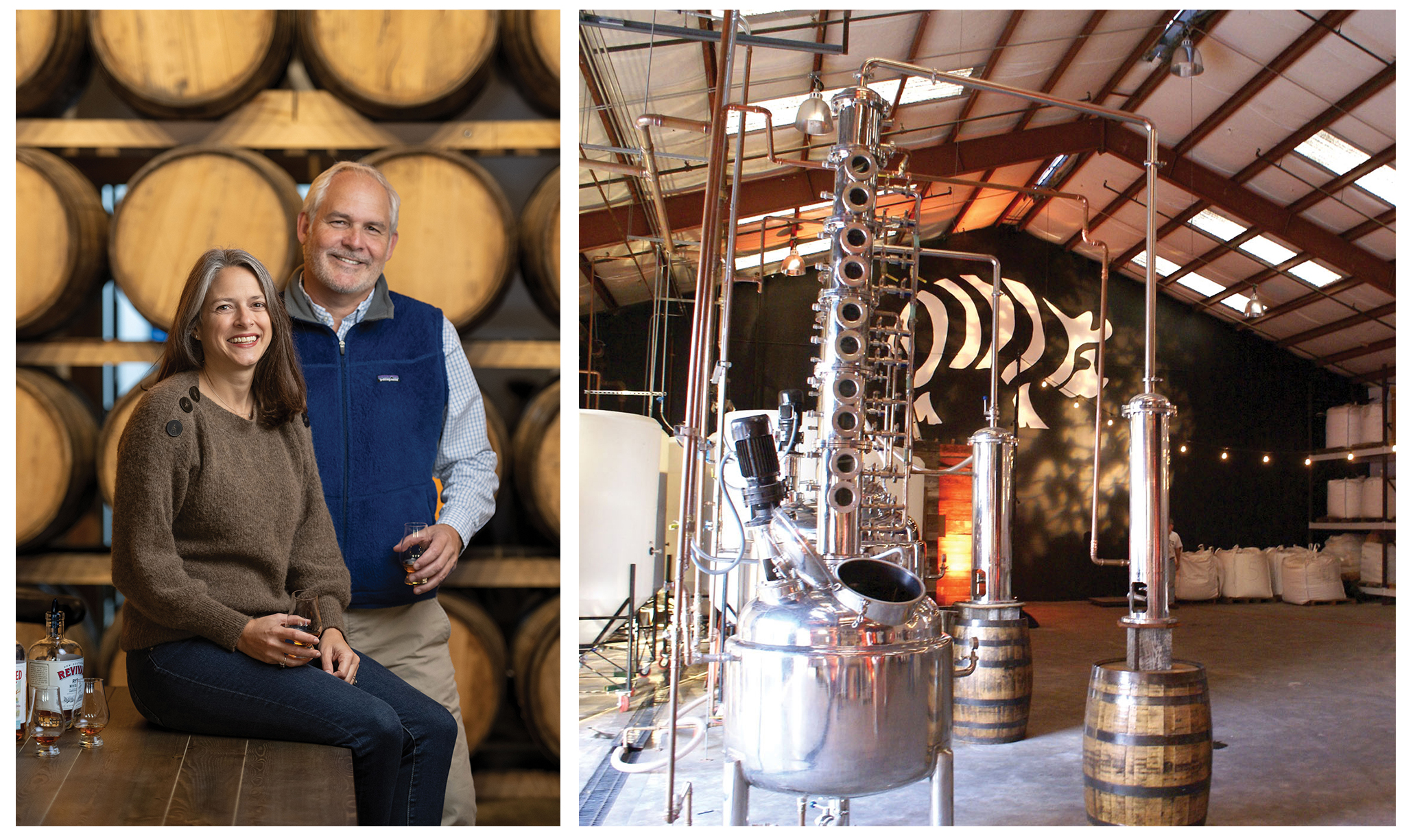
(Left) Cheers! High Wire founders Ann Marshall and Scott Blackwell at their Huger Street distillery and tasting room; the couple celebrated the 10th anniversary of their award-winning, small-batch spirits company last fall; (Right) Piggybacked: One of the first to follow in Firefly’s footsteps, Striped Pig Distillery opened in a warehouse just off of Azalea Drive in North Charleston in 2013. New ownership took over in 2020 and announced a $10-million expansion in late 2022.
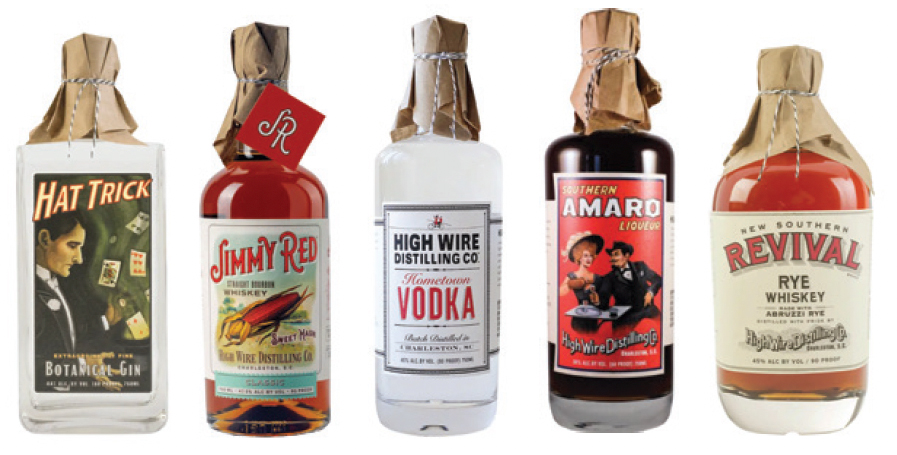
High Wire Sips: Marshall and Blackwell first made a name for themselves with Hat Trick Extraordinarily Fine Botanical Gin. Other spirits include Jimmy Red Straight Bourbon Whiskey, Hometown Vodka, Southern Amaro Liqueur, and New Southern Revival Rye Whiskey.
New Players Arrive
As the 2010s progressed, more new distillers entered the Charleston scene. In September 2017, Lewis Dodson, Jessica Krofta, and Kris Kincaid, the owners of Avondale Wine & Cheese, opened Cannon Distillery in the space next door to their wine bar. That same year, Traxler Littlejohn launched Nippitaty Distilling, producing organic gin and vodka in an industrial park off Azalea Avenue in North Charleston.
The most recent arrival, Beyond Distilling, was founded in December 2021 by Kerianne Krause, Tyler LaCorata, and Ryan Sadis on Rich Street in North Charleston. Their initial products include a coconut-flavored rum and a Caribbean-inflected gin that adds tropical fruits alongside the traditional juniper, though they’re busy laying in whiskey for the future, too.
None of these entrepreneurs come from distilling backgrounds. “I have biochemistry and chemistry degrees from College of Charleston,” says Kris Kincaid of Cannon. “So I understand the science behind it, but I never had actually made alcohol outside of the chemistry lab. We were F&B guys that were just like, ‘Let’s start a micro distillery up!’
“We already had a relationship with Greg Johnsman from Marsh Hen Mill from our restaurant days,” Kincaid continues, “and we were going to use his rye and make a rye vodka.”
From the beginning, though, they viewed vodka as a stepping stone. “Bourbon was what we really wanted to do,” Kincaid says, “but it takes time to do it right. So it was, ‘Let’s make a bunch of vodka, and then we’ll get into the bourbon once we have some sales going.”’
Even when made from local grains, regular vodka doesn’t exactly stand out in a crowd. As with its predecessors, fortuitous timing led Cannon to its first anchor product. Being former bartenders themselves, Kincaid recalls, they asked, “What do we want to do that’s easy for a bartender?” They landed on Chai Noon, a chai-spiced vodka, and Early Bird, a cold brew coffee-infused vodka—effectively, pre-flavored shots that a busy bartender could simply pour into a glass and serve.
“Now espresso martinis have really taken off,” Kincaid says, and their coffee-infused vodka is a perfect ready-made base. Though he expects the ratio to change in the future, coffee vodka now accounts for around 90 percent of Cannon’s sales.
On the Move
As local distilleries began to gain a market foothold, they began to outgrow their facilities. Firefly started searching for new digs around 2013, but it took several years to find the right spot—a large plot on Spruill Avenue that they bought from the City of North Charleston. It took another three years to complete the build-out. In early 2020, they moved their old 55-gallon still from Wadmalaw Island into the 21,000-square-foot facility alongside a gleaming new 500-gallon still from Louisville’s Vendome Copper & Brassworks.
In 2019, Charleston Distilling announced it, too, was moving, swapping its prime but small spot on Upper King for a new, much larger building off Maybank Highway. They opened the doors there in November 2020, complete with a new 45-foot-tall still that more than doubled their output.
For Marshall and Blackwell of High Wire, the impetus to move was the unexpectedly rapid success of their 100-percent Jimmy Red New Southern Revival Straight Bourbon. At the end of 2018, the whiskey was named the overall winner in Garden & Gun magazine’s Made in the South Awards, and High Wire promptly sold every bottle they had.
“We could have sold 10 times what we had,” Blackwell says. “We were like, we’re holding this business back.” It took some time, but they found a 23,000-square-foot building on Huger Street that was four times the size of their King Street location. It now serves as the distillery and tasting room, as well as an event space. They upgraded their equipment, too, installing a massive 20-foot-tall copper still from Germany’s CARL Distilleries, and secured 15,000 square feet of warehouse space on the old Navy base to store barrels of aging whiskey.
Cannon Distilling’s production space next to the Avondale Wine & Cheese shop had barely enough room for the still, fermenters, and about 20 barrels. In 2021, Kris Kincaid bought out his founding partners and moved the operation to an industrial park off Folly Road. He’s in the process of moving again to an even larger space at the front of the park, which should be open this spring.
“The new, new spot is going to be 14,000 square feet,” Kincaid says. “Kitchen, bar, event space, distillery space. And then we have 5,000 square feet in the back of the park just for barrel storage. So, we went from 2,000 to 19,000 square feet.”
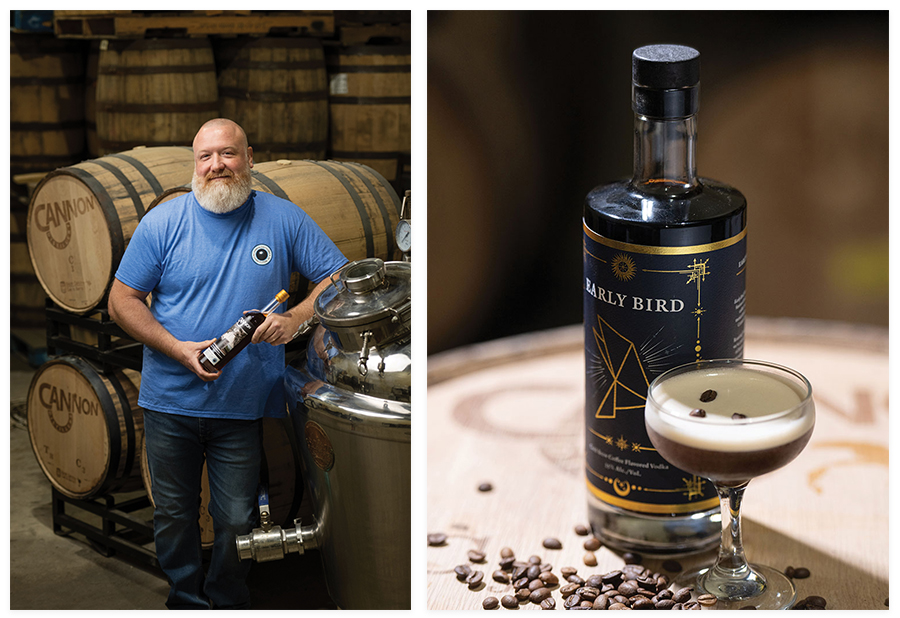
(Left) Room to Grow: Kris Kincaid has expanded Cannon Distilling’s operations, going from approximately 2,000 square feet in Avondale to 19,000 in a James Island industrial park off Folly Road.; (Right) Cannon Distillery uses Big Kick Coffee beans roasted in-house for its cold-brew coffee-infused vodka and in its Early Bird Espresso Martini.
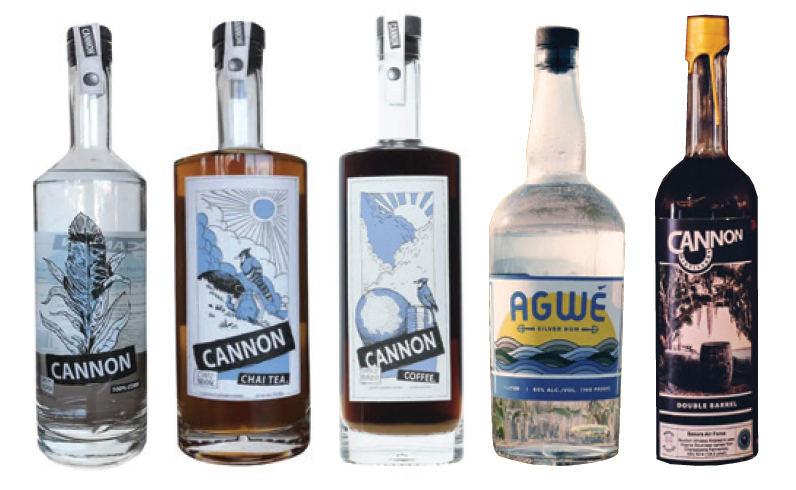
Cannon Distilling Sips: This line also started with vodka, CAP: Cannon All Purpose, as well as the Chai Noon spiced and Early Bird cold brew coffee varieties. Other spirits include Agwé Silver Rum and Double Barrel Bourbon Whiskey.
Nippatity Distillery jumped on the moving truck in August 2021, transitioning into a converted Gulf service station on Spruill Avenue, three blocks north of Firefly, with enough space for a 40-seat tasting room. That leaves Striped Pig and newcomer Beyond as the only two area distilleries still in their original buildings.
But that doesn’t mean they aren’t eyeing expansion. In 2020, “Pixie” Paula Dezzutti, owner of Charleston liquor distributor Local Choice Spirits, purchased Striped Pig from its founders, and in December 2022, she announced a planned $10-million expansion that will eventually add a new bottling line and events facility.
Distilleries as Destinations
It’s not a coincidence that, as they upgrade facilities, Charleston’s distilleries have put more emphasis on tasting rooms and event spaces. Those are increasingly becoming important facets of the business, and like just about everything else in the industry, it took hard-won changes in state law to make them possible.
This time around, it was a team effort, for the state’s spirits makers have banded together to form the South Carolina Craft Distillers Guild, of which Scott Blackwell of High Wire is president. He and Ann Marshall (“Mostly Ann,” Blackwell says) spent many weeks in Columbia in the spring of 2021, buttonholing legislators and navigating a dizzying maze of lobbyists and legislative wrangling.
The result was Senate Bill 619, which the governor signed into law on May 17, 2021, and eased many of the restrictions on distillery tasting rooms. Sales of bottled spirits still have to end at 7 p.m., just as in liquor stores, but distilleries can now sell up to six bottles per customer per day. More importantly, their tasting rooms can operate much like any other bar, including serving cocktails with mixers. “We can also serve beer and wine now,” Marshall says, “which is important, because there’s always somebody in a group that does not want to drink a cocktail.”
When Firefly moved into their new North Charleston facility, they planned to host concerts in the large field adjoining the distillery. To do so, they had to shut down the entire building and rent the field to a third party, which would buy Firefly products from a wholesale distributor and sell them under a special event license. Now, they can keep their tasting room open during concerts and other special events, and a partnership with Live Nation is booking major acts like Willie Nelson, who played at Firefly in October.
“This is my marketing venue,” Scott Newitt says. “I don’t put up billboards and run TV commercials, so my goal is to get as many tourists here who will go home and ask their stores to bring in Firefly.”
If things go as planned, many more visitors to the Lowcountry will be encountering Charleston’s unique lineup of locally made spirits. It’s been a long journey of more than a decade, but our local distillers are making a clear and very compelling mark, both here in local bars as well as in retail stores across the country.
Many of Charleston’s distillers got into the game through a desire to make bourbon, and now those ambitions are coming to fruition >>READ MORE HERE
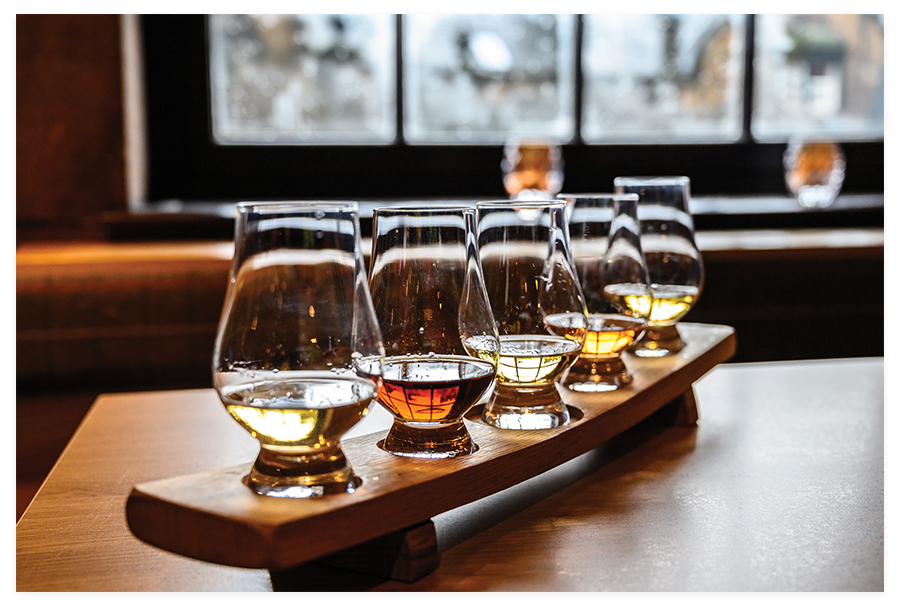
Local distilleries offering tours and tastings >>VIEW A MAP HERE